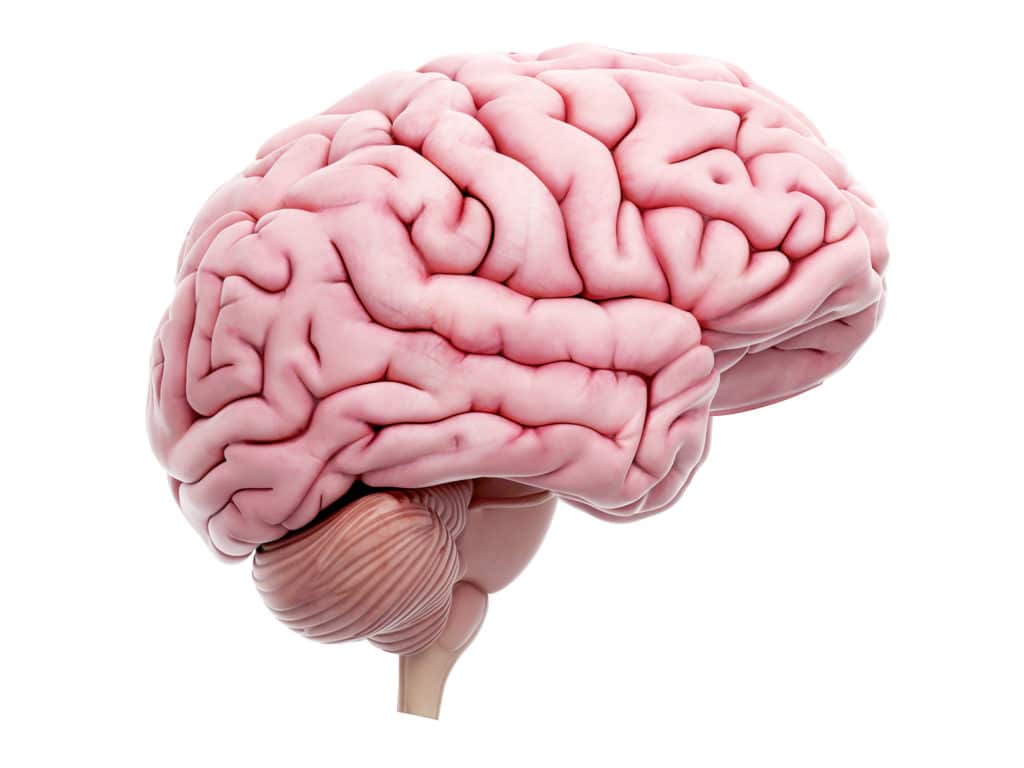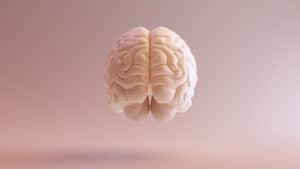How Menopause Affects Your Amazing Brain & What You Can Do

Let’s look at how menopause affects your amazing brain
So, you’re going about normal life when a friend says something seemingly innocuous. For some reason, you feel extremely hurt and are tempted to scream at them.
Or perhaps your thought processes feel foggy, you keep forgetting things and your mental clarity appears to have taken a nosedive.
Has any of this happened to you recently making you question your sanity?
I know it’s happened to me a lot over the last few years and it’s not fun!
It even prompted a text to my ex to say I thought I was going crazy.
In hindsight, some instances can almost seem amusing and vitamin H aka humour is always important on this rollercoaster. However, it’s a serious issue because many of us can’t fathom what’s happening and we do think we’re going crazy or perhaps succumbing to dementia. It’s also a time that can cause relationship break downs with family, friends and significant others and – worse – suicide.
But, listen up. Before you take yourself off to the loony-bin we’re here to tell you YOU ARE NOT GOING CRAZY. This is some ways menopause affects your amazing brain.
Menopause & your amazing brain
As we enter the perimenopausal years and move through into post-menopause our sex hormones – particularly estradiol – are constantly changing and often fluctuating. And it’s not just the ovaries here but our HPATG axis – hypothalamus, pituatary, adrenals, thyroid and ovaries. The hypothalamus in our brain is the master of the endocrine (hormone) system and works with the pea-sized pituatary gland, which sits at the base of the brain. It’s known as the master gland, and it secretes hormones and tells other glands to produce them.
Estrogen
Estrogen is an important part of the brains work and helps support its function. For the record, we have three types of estrogen: estradiol is dominant during our reproductive years and that’s the one that’s reducing. But we also have estriol during pregnancy and estrone, a weaker form of estrogen that dominates in post-menopause.
There are several estrogen receptors (ER) in the brain which help to regulate cognition, emotions, mood, reasoning and creativity. These can all be affected during menopause as estradiol levels being to decline.
Note: One of the reasons many GPs prescribe antidepressants to women during menopause may be because estrogen helps to make the ‘happy’ neurotransmitters serotonin and dopamine – some prescripton antidepressants work on the same principle.
Progesterone
The sex hormone progesterone is also important to the brain. Often called ‘Nature’s Valium’ our progesterone levels decrease quite abruptly several years before estradiol levels begin to alter. Progesterone helps the function of Gaba Amino Butyric Acid (GABA), a neurotransmitter in the central nervous system, which produces a calming effect. Lower levels of progesterone can impair its function leading to poor sleep, anxiety and mood swings.
The brain is a complex organ and a multitude of neurotransmitters and hormones are part of its signalling process so as our hormones fluctuate and diminish during menopause our brain scrambles to keep up. One of the reasons for menopausal symptoms is that it can’t always do so immediately.
What happens next?
Mood swings, brain fog and changes to your focus and memory.
Mood swings
As we now know, estrogen is key to good brain function and it helps with the stimulation of the ‘happy’ chemicals serotonin, dopamine and norepinephrine. But our moods are also reliant on the calming effects of progesterone. So as progesterone lowers in our 30s and estrogen usually begins to fluctuate in our 40s an imbalance can lead to mood swings and feelings of irritability, sadness, anxiety and panic attacks.
Brain fog
Also known as mental fatigue, forgetfulness, cotton wool brain, fuzzy or cloudy thinking, brain fog is actually an umbrella term for a gamut of conditions such as poor concentration, lack of focus and memory lapses.
What causes it during the meno years? Scientists believe its to do with changes in estrogen and progesterone levels because, as we noted earlier, estrogen is a regulator of cognition and mental clarity and also impacts our communication and organisation abilities.
Have you ever put your car keys in the fridge? Forgotten to go to an important appointment? Or missed the details from a work meeting?
These are examples of brain fog and all of its repercussions. It can have a profound impact on quality of life. It’s also a concern when trying to work, run a household and family or manage a high powered job.
However, it’s important to be aware that there are numerous causes of brain fog aside from hormonal changes. These are often lifestyle-related and include sleep disorders, poor nutrition, digestive issues, chronic stress, lack of exercise and even not drinking enough water.
What can you do?
1. Get enough sleep
I know if you’re having sleep issues this may bring forth the thought ‘that’s easy for you to say’ but a lack of sleep is widely known to impact alertness and mental abilities. Plus it raises the stress hormone cortisol and depresses dopamine levels contributing to mood swings.
Sleep is crucial to our memory, organisation, creativity and ability to work, problem solve, form ideas and make good judgement calls.
Many women post-40 have sleep issues from waking up in the middle of the night through to full-blown insomnia. This can be due to lowered progesterone levels and estrogen fluctuating during the night disrupting your sleep.
Try:
- Diarising your sleep schedule and sticking to it even on weekends
- Making your room a sleeping sanctuary with block out window dressings and absolutely no light-emitting devices: TV, computer, phone
- Not eating three hours before bed (so your body’s not working on digestion)
- Learning to meditate and doing so just before bedtime
- Using linen and sleepwear made from natural fibres
- Forgoing caffeine, alcohol and spicy foods
- Use Merry Peri® or Perky Post®. The saffron in them has been shown to support sleep after four weeks of daily use.
Download our Sleep Hygiene Guide here.
2. Take a look at your diet
Even if you think you’re eating optimally ensure your gut is healthy as well. “You are what you eat” really means “you are what you absorb” so if your digestive health is impaired you won’t be getting all the nutrients from your food. We have Happy Go Tummy® to support your gut.
And the Mediterranean Diet has consistently been shown to be good for human health and it’s particularly beneficial for women post-40.
Mediterranean diet basics:
- Eat plenty: Fruit, vegetables particularly leafy greens, nuts, seeds, whole grains (oats, quinoa, brown rice), herbs and spices (powdered or fresh), extra virgin olive oil, fish and seafood
- Use moderately: Poultry, eggs, cheese, milk, yoghurt
- Limit: Red meat
- Avoid: Refined sugar, carbohydrates, added sugars, processed foods and meats
3. De-stress
One of the most effective and kind things you can do for yourself during menopause is to actively de-stress. While that may sound like a tall order it’s essential to minimising symptoms.
WebMD reported that Harvard University’s Alice Domar, PhD, found that the effects of stress on hormones can be so intense that it can induce symptoms whereas reducing stress can have the opposite effect. According to Domar, women participating in relaxing activities saw a 30% reduction in hot flushes, a lessening of mood swings and a significant drop in tension, anxiety and depression.
Ways to de-stress:
- Take deep abdominal breaths
- Close your eyes and visualise a calming scene
- Learn meditation
- Yoga or Tai Chi classes can be beneficial
- Exercise (though not too hard out)
- Socialise
4. Give your brain a workout
It’s just as important to exercise your brain as it is to move your body.
To do this:
- Read books, newspapers, magazines
- Learn a new skill
- Take up doing crosswords or other puzzles
- Become a quizzer!
- Have interesting conversations
A word on dementia/Alzheimer’s
While many women become worried they could be developing dementia or Alzheimer’s disease during this time of cloudy thinking most cases of memory lapse are unrelated.
However, it is important to be clued up on these conditions as dementia has taken over from heart disease in Australia as the biggest killer of women and in New Zealand, it affects 70,000 Kiwis.
Dementia affects over 50% more women than men. The experts believe this may also have something to do with the decline of the hormone estrogen post-menopause. Though it’s typically known as the ‘woman’s hormone’ men produce estrogen too but females produce it in larger amounts, This reduces substantially as we age whereas the levels in a man’s brain tend to stay pretty constant.
Symptoms of Alzheimer’s disease include:
- repeating questions or statements over and over
- getting lost, even in familiar places
- trouble finding the right words to identify different objects
- difficulty performing daily tasks
- difficulty making decisions
- changes in mood, personality, or behaviour
For further information:
Conclusion
From all reports, it appears that brain fog issues may resolve over time and bounce back post-menopause. Right now adjusting your lifestyle may help to reverse your symptoms and set you on the road back to a clear mind.
This is one of the reasons we include resveratrol in our Perky Post® because the research behind its wonderful effects on brain health is impressive. Our brains are precious so let’s keep them as healthy as possible.
We hope this helps you understand how menopause affects your amazing brain.
This is part of a series of articles on the brain and menopause. Please see further suggestions below.
Related studies/papers:









